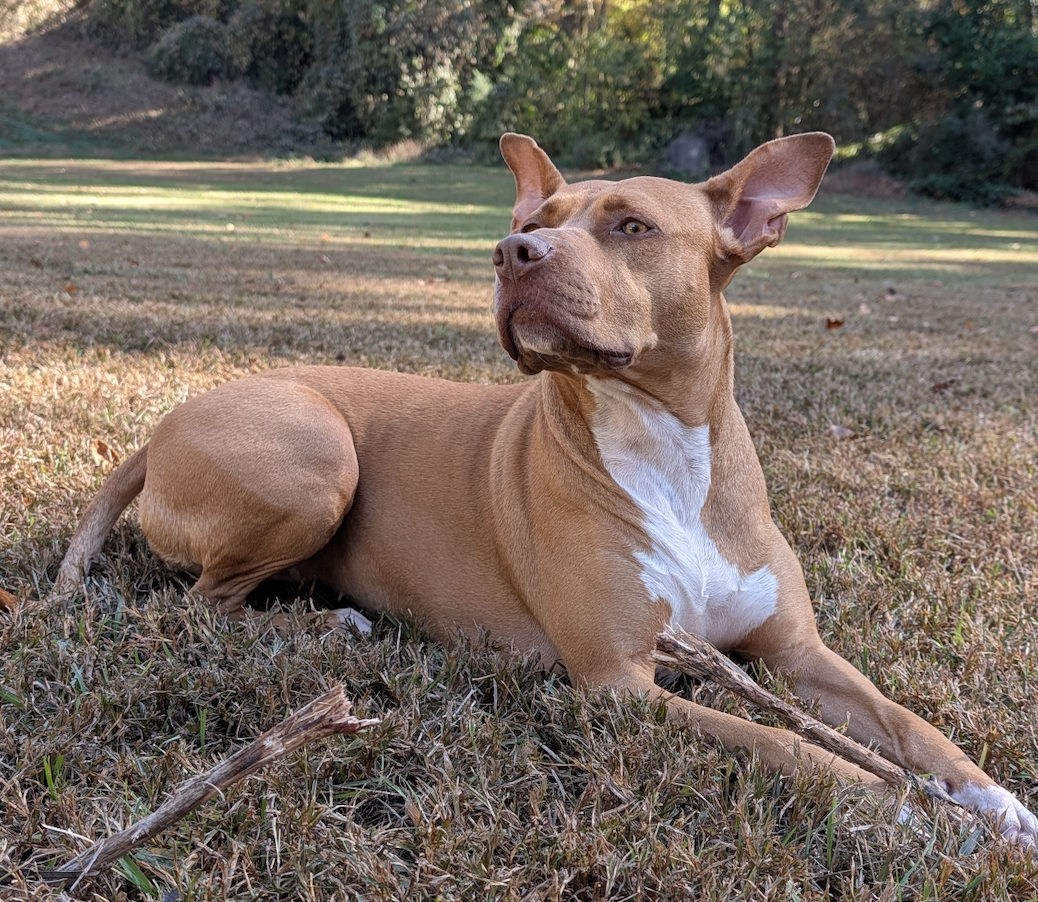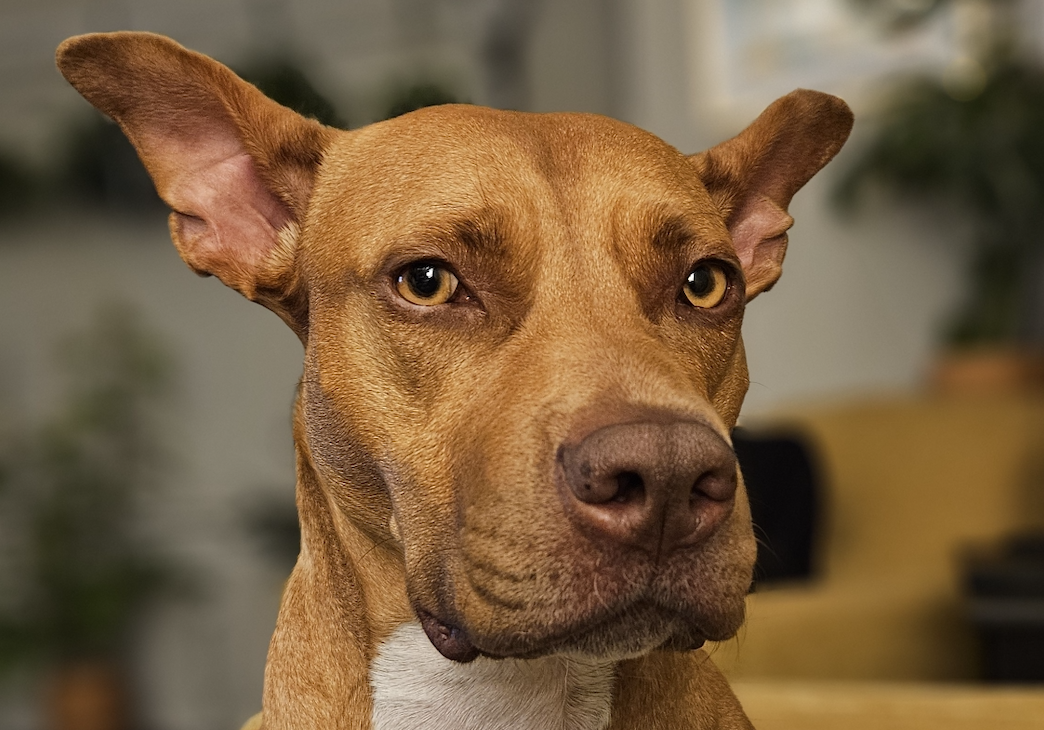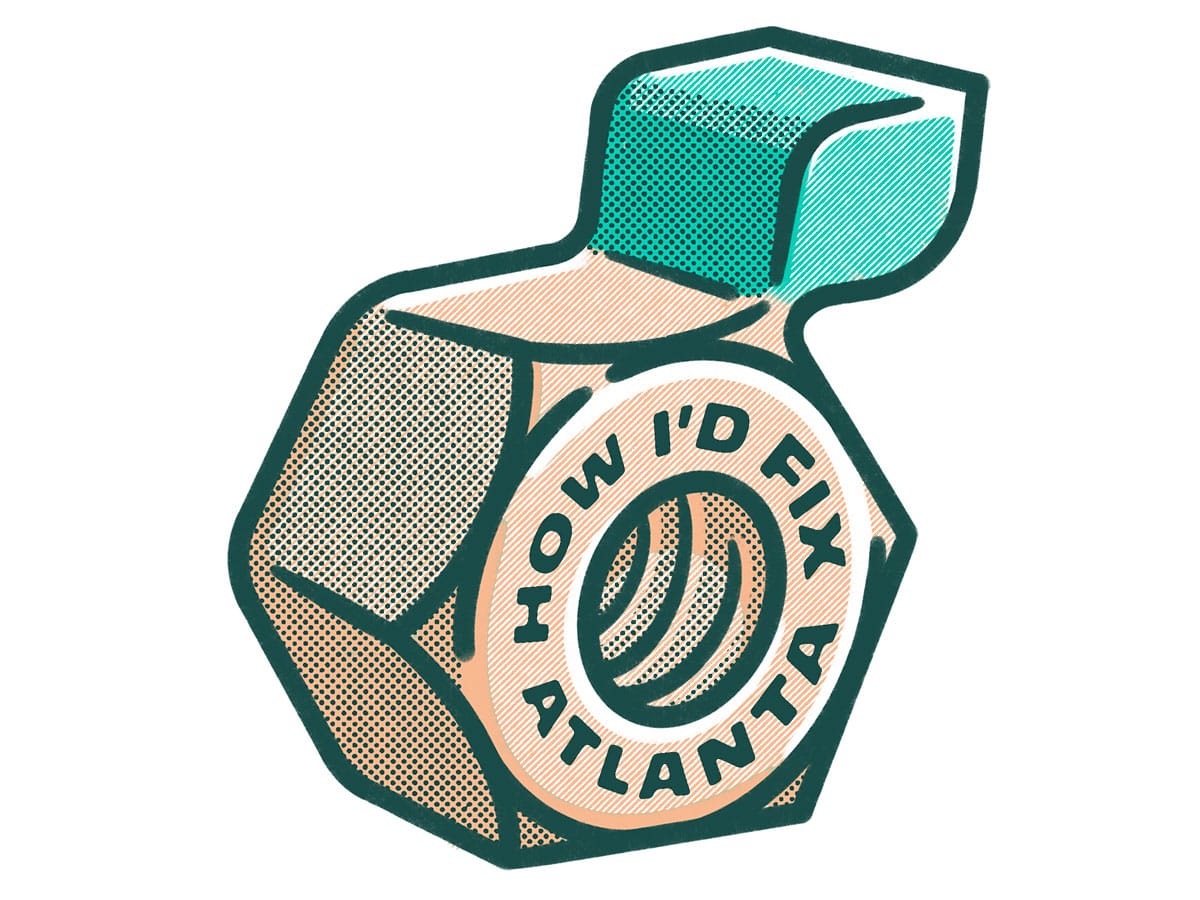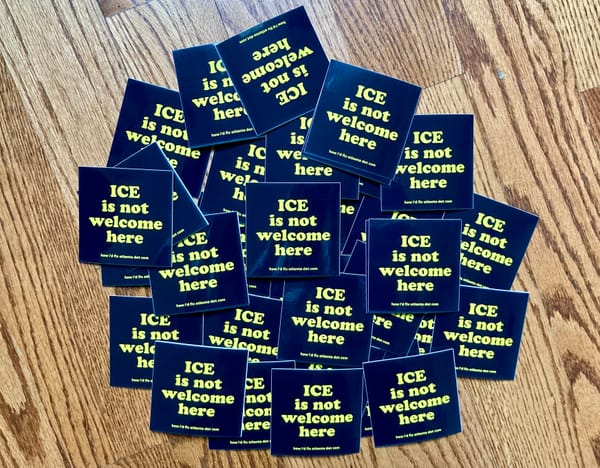How Kristal Dixon Would Fix Atlanta

How I’d Fix Atlanta — Modernize Our Outdated Dog Breed Restrictions
By Kristal Dixon
As I was walking my dog Hannah back to my apartment earlier in the summer, I was stopped by a woman who inquired about her breed.
“She’s a pit bull,” I said.
The woman responded by saying she wished she could adopt a pit bull, but breed restrictions halted her desire to offer a forever home to a rescue pup.
Scenarios like this are more common than you think, according to Fulton County Animal Shelter staff. Erica Beard, director of client services at the shelter, said the agency regularly has people who return a pet they’ve adopted or even surrender their beloved companion because, among other reasons, their landlord restricts the type of breed they can have or imposes size limits on animals.
“It does hinder some people from coming to foster and adopt because they do want to help, but they also know that they can't take the majority of our population home,” Beard told me, referring to their overwhelming number of “big blocky-headed, short-haired dogs” often classified as American Pit Bull Terriers.
These breed restrictions have their roots in stereotypes, and no longer should be a barrier to adopting a dog. It’s time we put an end to archaic breed restrictions that grew out of misinformation, fear, and racial discrimination.

Breed restrictions were popularized in the late 20th century. Often labeled as “dangerous,” breeds such as the American staffordshire terrier, American pit bull terrier, doberman pinscher, German shepherd, husky, chow chow, and others landed on many prohibited lists because of their alleged inherent aggressive tendencies toward other animals and people.
The most famous—or infamous, depending on your leanings—on the list is the pit bull, which has been falsely characterized over the years as having jaws that lock and understanding nothing else but fighting and killing, Bronwen Dickey writes in Pit Bull: The Battle Over An American Icon.
This misinformation grew out of some kernels of truth: pit bulls, a cross between the bulldog and terrier, got their start bull baiting and were used in early dog fighting matches. Over time, they were bred as pets and kept by mostly working-class people, Dickey writes.
According to Dickey, efforts to end and criminalize professional dog fighting rings during the 1960s and 1970s got a big boost when media outlets began pumping out stories about the horrors of dogfighting.
But instead of focusing on dog trainers and owners, pit bulls became the villains. And with crime rising in the 1970s across the country, people in cities opted to have pit bulls as guard dogs.
This, in turn, led to a business in producing guard dogs and, Dickey told Terry Gross on NPR’s Fresh Air in 2016, you had “very fly-by-night people…selling unstable dogs.” The result? More dog bites, which were sensationalized in newspaper articles and broadcast news reports as unpredictable and deadly pit bulls living next door to you and your children.

Like nearly everything in this country, racism is a driving force behind many societal dog norms. Pit bulls were linked to crime because they were popular in urban Black communities. “They became kind of proxies for a lot of the racial tensions that were brewing in America” during the 1970s and 1980s, Dickey told Gross. This association with urban crime—AKA: Black and Latino people—led to communities enacting bans on pit bulls, and later, other dogs.
Regulations vary by state and city. In Denver, Colorado, pitties are only allowed if you have a permit. Maryland’s Prince George’s County, which enacted its ban in 1997, stopped enforcing its prohibition in 2022 while it navigated a federal lawsuit over the restriction. Just earlier this week, the County Council finally voted to repeal the ban.
While Georgia doesn’t have a state law that imposes statewide breed restrictions, we do have a confusing patchwork of inconsistent ordinances and rules enacted by cities and residential communities. Clarkston and Marietta, for example, ban pit bulls and rottweilers from city parks, but have no such restrictions on other so-called “dangerous” dogs like German shepherds and dobermans.
Multi-family residential communities are free to impose their own rules, so one company that owns several complexes may have no restrictions, while others in the same area may have prohibitions. These prohibitions are one of many examples that show the loopholes tenants must jump through to have a quality of life at home similar to what homeowners enjoy.
On top of the lack of rent control and the thousands of dollars one has to save if they want to move, renters often have to shell out hundreds of dollars in fees to the property owner if they want to adopt a dog.

Fulton County Animal Shelter’s 50,000-square-foot building opened in late 2023 on Fulton Industrial Boulevard to quite a bit of fanfare. The shelter, operated by nonprofit LifeLine Animal Project, had previously been housed in a facility built in the 1970s on Marietta Boulevard. Its new beginning was celebrated because the shelter was finally getting a larger, modern place to care for abused, neglected animals.
But the shelter is still over capacity. In September, Client Services Manager Naomi Lawrence told me the new building is designed to house 325 dogs, but in the summer, it had a weekly average of 480 dogs on-site. This strain means that the shelter euthanizes dogs that aren’t adopted by a certain date.
Lawrence told me the shelter is “constantly fighting to get rid of some of those misconceptions” about pit bulls. Beard added that the shelter’s community support teams regularly talk with apartment complexes and landlords to see if they can come to an agreement on individual situations, and they also keep a list of properties and complexes that have no such restrictions in place.
Residential property owners and landlords that maintain these restrictions need to stop enforcing rules that became widely accepted because of now-debunked myths, exaggerated media reports, and racism. Overcrowding is caused by myriad issues, but breed restrictions shouldn’t be one of them.
Kristal Dixon co-writes the Axios Atlanta newsletter. She lives with Hannah, a rescue pup she adopted from the Atlanta Humane Society in 2022.
How I'd Fix Atlanta is an essay series by ATLiens for ATL. In each of these pieces, a thoughtful human argues for one way we could make our city better. Sometimes the ideas are serious. Other times? A little more lighthearted. From infrastructure to food trucks, public transit to wildflowers, nothing is off limits.
How I’d Fix Atlanta was created by Austin L. Ray. It's a free newsletter sent on a Thursday of most months. It's also an annual zine that costs money. Sometimes it’s a performance on a stage. Other times, it’s a fundraiser. It's always a bunch of stickers. Occasionally it's featured on a podcast or a legendary WABE show. How I’d Fix Atlanta is large, it contains multitudes.
Each writer is paid $1,000 for their essay. Thanks for reading.





